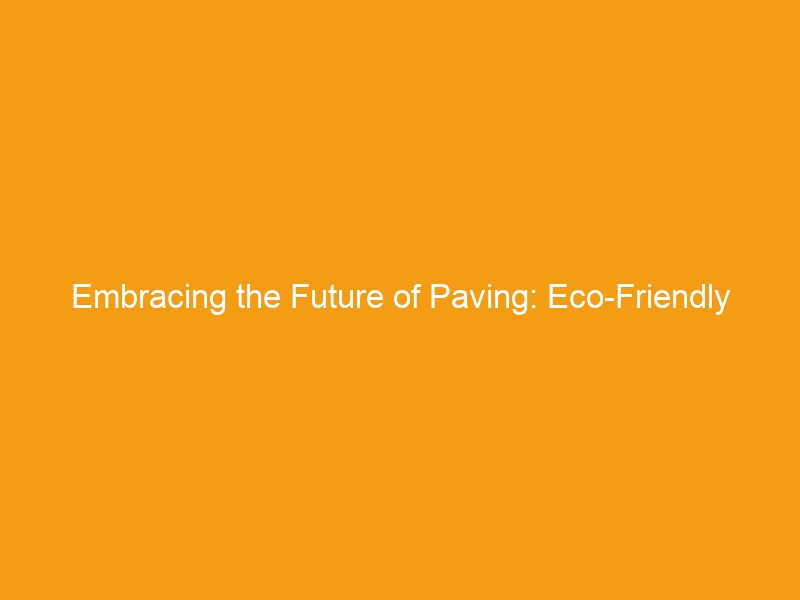Environmental sustainability has transcended buzzword status to become a foundational principle in various industries, including construction and road-building. With the ever-increasing concerns regarding climate change and natural resource depletion, pursuing eco-friendly alternatives in asphalt production is not just prudent but necessary. This article explores innovative and sustainable approaches to paving that fulfill infrastructural requirements and exemplify environmental stewardship. It’s a shift that involves stakeholders who question the norms and dare to ask where they can find not just asphalt but sustainable paving solutions for the future.
Introduction to Sustainable Pavement Solutions
As urbanization accelerates, the demand for sustainable pavement solutions rises, necessitating a balance between development and environmental well-being. This formerly overlooked sector now leads to innovation, emphasizing a holistic approach beyond material selection. Stakeholders understand that sustainability hinges on resource efficiency, waste reduction, and ecological preservation throughout the paving process. For those examining options on where to buy asphalt in bulk, it is imperative to recognize that today’s choices have lasting effects on tomorrow’s environment. With the spotlight on sustainability, forward-thinking companies and municipalities seek out suppliers that offer eco-friendly materials, thereby aligning with the global shift towards responsible construction practices.
The Rising Demand for Eco-Friendly Asphalt
The surge in demand for sustainable asphalt reflects a widespread recognition of the environmental impacts of traditional road construction. From civic planners to corporate buyers, stakeholders prioritize asphalt that minimizes harm while offering durability and low maintenance. This societal shift stems from a genuine desire to mitigate construction’s environmental impact, bolstered by regulations and eco-conscious consumers.
Types of Environmentally Friendly Asphalt
Recycled Asphalt Pavement (RAP) reduces landfill trash, conserves resources, and displays creativity by reusing project leftovers into new road materials. In light of climate change, warm-mix asphalt poured at lower temperatures lengthens the paving season, reduces emissions, and enhances workability. Because it is made of organic resources, asphalt reduces carbon emissions and the need for petrochemicals, which has the potential to revolutionize road construction and move it closer to environmental sustainability.
The Lifecycle of Eco-Friendly Asphalt
The lifecycle of environmentally friendly asphalt, covering maintenance, recycling, application, production, and raw material sourcing, is pivotal for sustainable development. Emphasizing this holistic approach ensures today’s asphalt benefits tomorrow’s projects. Progress in enhancing asphalt’s longevity and recycling potential reduces the need for new materials and lowers energy consumption during manufacture. Environmentally friendly asphalt sets a standard for responsible infrastructure development, prioritizing sustainability and creating a greener future.
Reducing the Carbon Footprint with Advanced Asphalt Technologies
Advanced asphalt technologies have the potential to reduce the industry’s carbon footprint significantly. This reduction is achieved through innovative mix designs, improvements in recycling methods, and new manufacturing processes that lower emissions. Introducing reflective asphalt surfaces is a step toward mitigating the urban heat island effect. This practical application benefits cities and their inhabitants by moderating local climate extremes.
The Road Ahead: What’s Next for Eco-Friendly Asphalt?
The future of eco-friendly asphalt is bright, with ongoing research and collaboration driving advancements in sustainable paving materials. Industry-academia partnerships are crucial for unlocking further potential. As the political climate favors a greener future, manufacturers can anticipate supportive policies and a shift towards practices prioritizing environmental impact alongside material performance. With vast innovation potential, the paving industry is poised to positively contribute to the environment and society, signaling a new era of sustainable infrastructure development.

